There are several reasons why the sales of electric cars are falling significantly - the latest CSO statistics showing a 24 per cent drop in the first six months of this year, compared to the same period last year - and the most significant seem to be consumer confidence and sentiment.
Irish car industry sources have told RTÉ Motors that many buyers are turning away from EV options because they are simply not confident about making what is a very significant decision in financial and ownership terms. This at a time when the cost of living is a major concern.
The number of new petrol and electric hybrid cars sold in Ireland increased by 33% when compared with the same period in 2023. This has increased the share of hybrids from 18% last year to 22%.
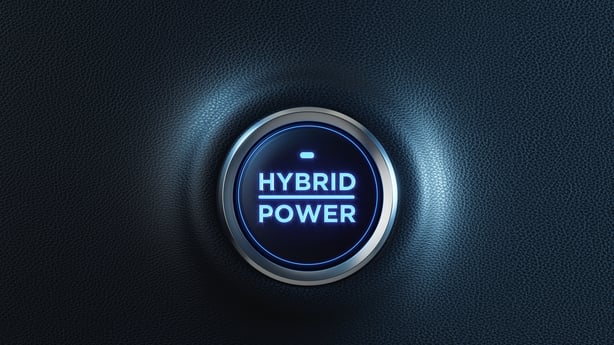
Toyota's Chairman, Akio Toyoda, (a company that has bet far more on hybrid than electric and has had very strong hybrid sales in Ireland) believes the global share of EVs will eventually level off at just 30% and the future is a "multi-pathway" strategy that includes EVs along with hybrids, hydrogen fuel-cell vehicles, green fuels and, potentially, other technologies yet to emerge.
According to the sources we spoke to, a slew of negativity - online and elsewhere - about the varied experiences of EV ownership has made people suspicious of these cars.
One leading brand executive cited an example of how confidence has been dented in Ireland. One of its dealerships in rural Ireland recently had two customers drop out of their deals - even after a deposit had been paid - because of what these customers had subsequently heard from others and read online.
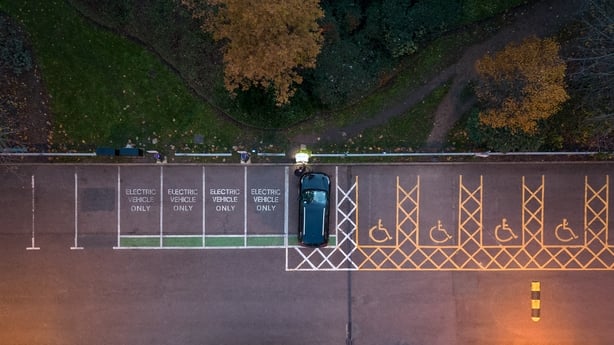
Contributing to this lack of confidence are the recent drops in prices, from Tesla to companies like Volkswagen (even so, many EV’s remain relatively expensive); issues with public charging; continued range anxiety; fear about costly battery replacement - even though many manufacturers offer an eight-year battery guarantee - and fears about second-hand values into the future.
The drop in the value of grants - from €5,000 to €1,500 - is also a factor for many people.
The arrival of cheaper electric cars from China, many of which are very well equipped for their price range, has also encouraged some people to expect that prices will get even lower and that it is better to hold off until those prices do balance out and the actual achievable range of EV’s generally improves.
I make a point of asking people at charging stations about their experience of driving an EV and many say they now accept that their experience is part of a transition towards fully electric motoring, which still has some way to go and still has attendant problems.
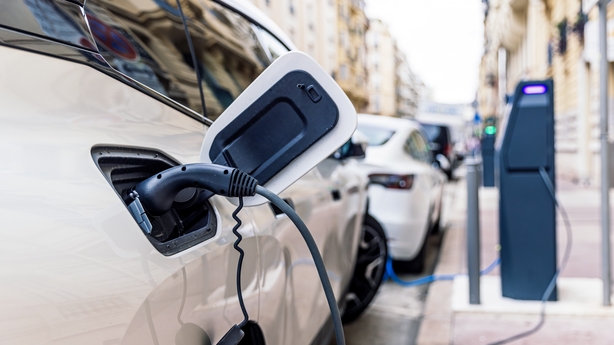
Many have told me about their experiences with chargers not working properly, queuing for long periods while waiting for an available charger, and software faults with chargers. This kind of experience is often shared widely.
Some also point out that the difference between winter and summer ranges is a concern. Colder winter weather and the increased use of equipment such as the heater and lights use more battery power, thus depleting the range.
I've driven many EV's for which the official WLTP range testing figures did not match my own consumption figures. Consumers need to be more wary of claimed ranges, even though most cars have a reasonable range for average driving requirements.
And many feel that motorway speeds do not suit EV battery consumption.
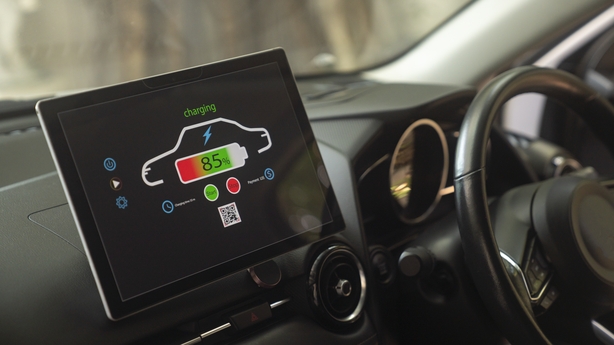
The Chairperson of the Irish Electric Vehicle Association Matthew Sealy told RTÉ News that there is still a lot of "bad information" about EV’s in the public domain, saying. "We've heard it from dealers over the last couple of months that people don't want EV’s".
Another issue that is putting customers off buying an electric vehicle is the public charging infrastructure, he suggested. Meanwhile, the Government has promised to increase the amount of publicly accessible charging points.
"Bad news travels a lot faster than good news", says another industry figure, citing the fact that there are about eight different charging providers. "The absence up to now of proper tap and go facilities at charging locations has been a problem for many people. Some drivers have had to sign up to have five different cards and apps", he says.
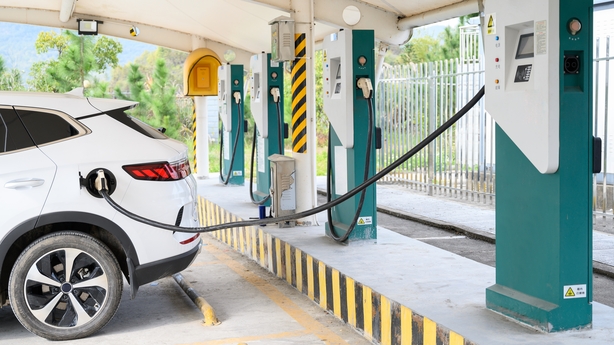
There are also issues around the location of chargers - many are located in dark and unsheltered areas, even at filling stations. This doesn’t exactly make people feel safe, especially at night and it’s not a pleasant experience when it’s raining.
People with home chargers and who have relatively low mileage requirements tend to fare best with EV’s, even in rural areas. Industry sources say that even though diesel is still preferred by many rural drivers, EV’s are being bought by them and people are adjusting to them.
Some companies, like KIA, have been offering 48-hour test drives so people can familiarise themselves with the EV experience and see if it fits their lifestyle.
"People should do their homework. They may decide it's not for them or they might well decide it is - people can be very surprised at how well home charging can work for them. But it can be hard to dislodge some ideas", says one source.
If an EV owner has relatively modest weekly mileage and can charge at night rates as low as seven cent per KwH hour, then they are unlikely to have any significant issues. Quite the contrary, in fact.
For people with regular longer mileage journeys and who rely more often on public charging - even though there are many more chargers now and the number is growing - these can often be lower output chargers that can take some hours to charge a car.
I’ve spoken to several people who thought all chargers had equal output and have had to learn a hard lesson. Many had an expectation that they could easily access fast chargers, which is not always the case. They are increasing in number, however, especially on motorways.
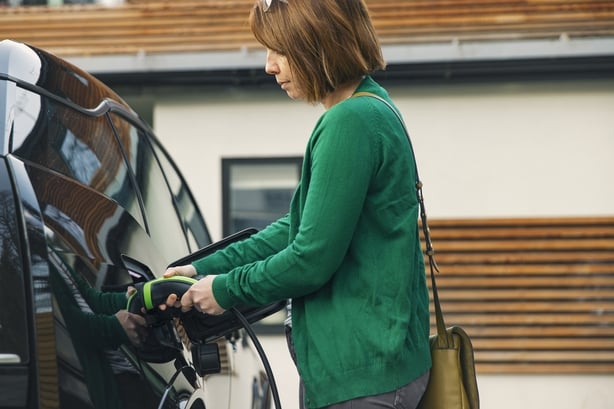
That said, I’ve had plenty of occasions when charging was hassle-free at both ESB and the privately-owned (and more expensive, it has to be said) Ionity charging stations.
A little forethought and planning can go a long way to alleviate any charging stress but there is no avoiding the fact that, as EV’s become more popular, getting delay-free access to a fast charging point is becoming more of an issue.
The figures from the Central Statistics Office reveal show that 14% of all new cars licensed for the first time were electric, compared with 18% in the same period in 2023.
The number of new petrol and electric hybrid cars rose by 33% when compared with the same period in 2023. This has driven up the share of hybrids among new private cars from 18% last year to 22%. The number of new diesel cars licensed rose by 10% to 21,624.
These figures obviously show a worrying trend in terms of where we are supposed to be with EV sales by 2030.
There's little research in Ireland that I'm aware of which gives a clear picture about peoples' decision making in relation to EV's but there is other research available.
One Goldman Sachs analyst believes there are three main factors holding back EV growth, according to Reuters: rising concerns around the capital costs of EVs, uncertainty around numerous elections this year and decreasing visibility on possibly government policies that could affect the EV industry, and a shortage of rapid-charing stations.
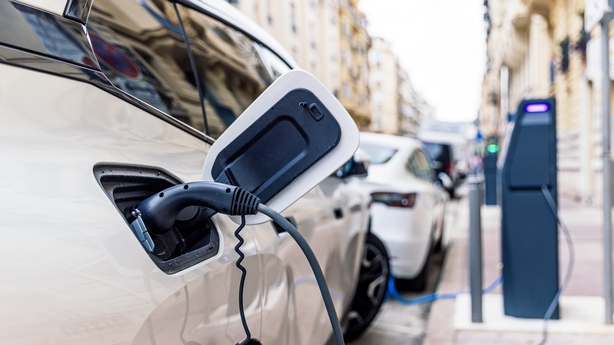
Fleet News in the UK - reporting on a recent Green Finance Institute survey - reports: "Of drivers who said they wouldn’t buy a used EV, 62% cited concerns around battery lifespan – making the fear of poor battery health the single largest barrier preventing the second-hand market from taking off, a concern echoed by industry experts".
Nearly three-quarters of the 21 dealerships involved in the report said battery lifespan was one of the top consumer concerns in the context of used EVs. Of those who currently wouldn't buy a used EV, 27% cited cost and the cost of maintenance as a major factor.
Experts also point out that serious battery issues are relatively rare and that individual battery cells can be replaced rather than an entire and very expensive battery.
However, the report says that research has shown that the overall running costs of an EV over its lifetime of ownership are typically less than that of petrol or diesel engine counterparts.
I've met many very satisfied EV drivers who feel they are being environmentally conscious, are happy with their cars and the savings they have made in terms of electricity costs compared to petrol or diesel.
However, it is clear that many people are holding back from buying an EV for a variety of very challenging factors.
The views expressed here are those of the author and do not represent or reflect the views of RTÉ.


